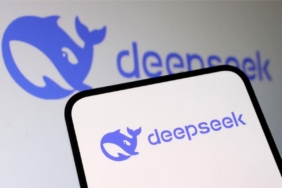Alibaba, the prominent Chinese technology company, announced on Wednesday the launch of its latest Qwen 2.5 Artificial Intelligence (AI) model, claiming that it has outperformed the well-regarded DeepSeek-V3.
The timing of this release, coinciding with the first day of the Lunar New Year—a period typically reserved for family gatherings—signals the mounting pressure that the rapid emergence of Chinese startup DeepSeek has exerted on both international competitors and local entities within the industry.
According to Alibaba’s cloud division, the Qwen 2.5-Max model outperforms competitors including GPT-4o, DeepSeek-V3, and Llama-3.1-405B across various metrics. This assertion was made via an announcement on the company’s official WeChat account, highlighting the competitive landscape shaped by current AI advancements.
DeepSeek’s introduction of its AI assistant utilizing the DeepSeek-V3 model on January 10, followed by the launch of its R1 model on January 20, has sent shockwaves through Silicon Valley, causing significant declines in technology stock valuations. The affordability of DeepSeek’s development and usage costs has raised concerns among investors regarding the extravagant expenditure plans of leading AI firms in the United States.
This success from DeepSeek has ignited a rush among domestic competitors to elevate their own AI capabilities. For instance, just two days after the launch of the DeepSeek-R1, ByteDance, the owner of TikTok, rolled out an update to its core AI model, asserting that it surpassed OpenAI’s o1 in AIME, a benchmark that evaluates AI’s understanding and execution of complex instructions.
This claim mirrors DeepSeek’s assertion that its R1 model is competitive with OpenAI’s o1 across multiple performance measures.
Domestic Competition Among AI Firms
DeepSeek’s previous model, DeepSeek-V2, initiated a price war in the Chinese AI market following its release last May. The open-source model was notably affordable, priced at merely 1 yuan ($0.14) per million tokens, prompting Alibaba’s cloud division to announce price reductions of up to 97% on several of its offerings.
Other major Chinese tech companies, including Baidu and Tencent, also responded with competitive adjustments. Baidu introduced China’s first equivalent to ChatGPT in March 2023, reinforcing the intensifying rivalry in the AI sector.
Liang Wenfeng, the founder of DeepSeek, expressed in a rare interview with the Chinese publication Waves in July that the company was unconcerned about price wars, focusing instead on the pursuit of artificial general intelligence (AGI). OpenAI describes AGI as systems that can surpass human capabilities in a majority of economically valuable tasks.
Despite the extensive workforce of large corporations like Alibaba, DeepSeek operates with an agile structure, mainly staffed by young graduates and doctoral students from elite Chinese universities. Liang suggested that established tech giants may struggle to adapt to the evolving AI landscape due to their higher operational costs and rigid management hierarchies. He emphasized that despite the scale of larger companies, their capacities have inherent limitations, creating opportunities for nimble startups like DeepSeek.
© Thomson Reuters 2025
(This story has not been edited by NDTV staff and is auto-generated from a syndicated feed.)






